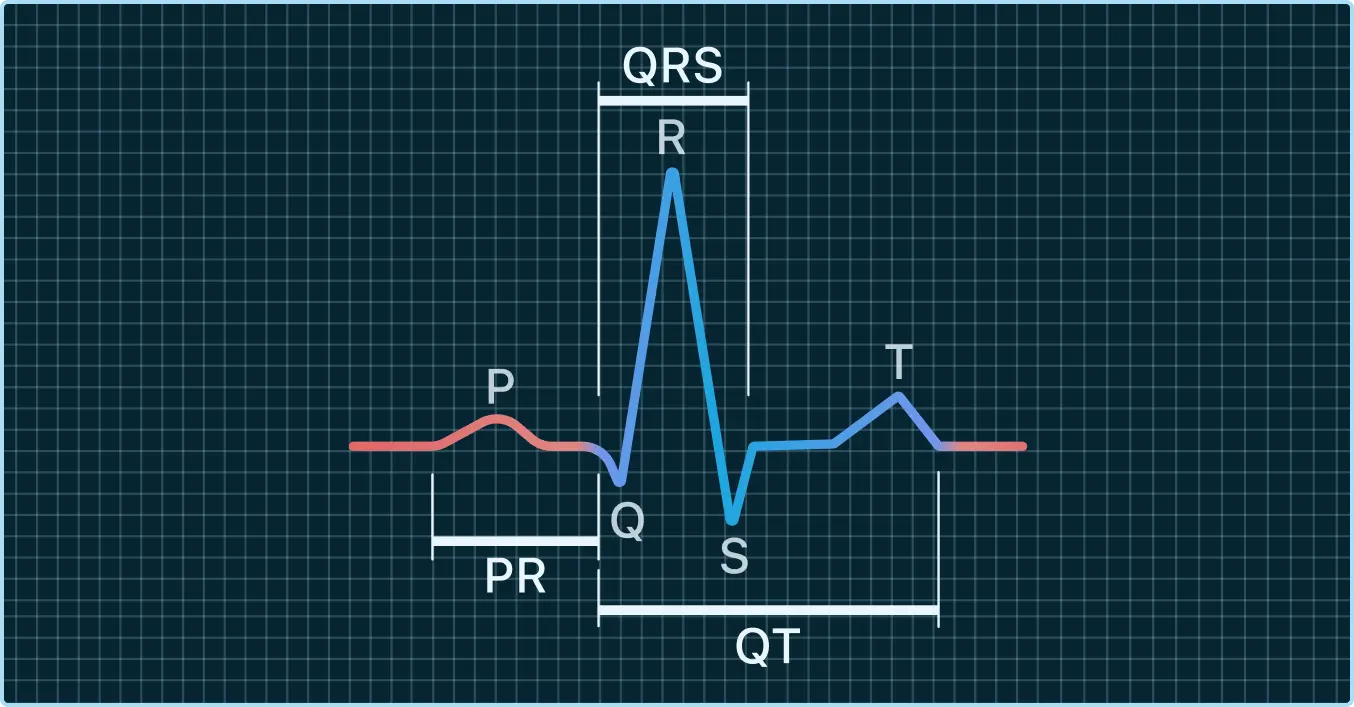Calculate your corrected QT interval adjusted for heart rate. An essential tool for screening Long QT Syndrome and assessing medication-related cardiac risks.

The QTc Calculator estimates your corrected QT interval adjusted for heart rate. A prolonged QT interval increases risk of dangerous arrhythmias.
Your heart's electrical system needs time to "reset" between beats. The QT interval measures this recovery time. When it's too long, your heart becomes vulnerable to irregular rhythms, like an engine that doesn't fully reset before the next cycle.
QTc = QT / √RRQTc = QT / ∛RR
QTc = QT + 154(1-RR)QTc = QT + 1.75(HR-60)QTc stands for "corrected QT interval" - a measurement of your heart's electrical activity adjusted for your heart rate. The QT interval shows how long it takes for your heart's ventricles to recharge between beats. Since heart rate affects this measurement, we "correct" it to get a standardized value that can be compared across different heart rates.
A prolonged QTc interval can increase your risk of dangerous heart rhythm problems, including a life-threatening arrhythmia called Torsades de Pointes. Many medications, genetic conditions, and electrolyte imbalances can prolong your QTc. Doctors check QTc before prescribing certain medications and monitor it during treatment.
The calculator takes two measurements from your ECG - the QT interval (in milliseconds) and your heart rate (in beats per minute) - and applies a correction formula. The most common formula is Bazett's formula, though other formulas like Fridericia's or Framingham's may be used depending on your heart rate range.
Normal QTc values are generally:
- Men: less than 450 milliseconds
- Women: less than 460 milliseconds
A QTc between 450-500ms may be borderline or mildly prolonged. Values above 500ms are considered significantly prolonged and carry higher risk of arrhythmias.
Yes! Many common medications can prolong QTc, including certain antibiotics, antidepressants, antipsychotics, anti-arrhythmics, and antihistamines. Always inform your doctor about all medications you're taking, and never stop medications without medical guidance.
Treatment depends on the cause. If medications are prolonging your QTc, your doctor may adjust doses or switch medications. Correcting electrolyte imbalances (like low potassium or magnesium) can help. If you have congenital long QT syndrome, your doctor may prescribe beta-blockers or other treatments and recommend avoiding certain triggers.
On the Qaly app, send ECGs from your Apple Watch, Samsung Galaxy Watch, Fitbit Sense, Fitbit Charge 5, Withings Move ECG, Withings Scanwatch, Kardia, Wellue, WHOOP, Garmin Watch, or any other ECG device ❤️

Amazing comfort for any one struggling with heart issues.

Best peace of mind for your ❤
Extremely grateful for the person who reviewed my ECG.

To the pros reading my ECGs, thank you!
Life changing!

I looked for an app that uses real technicians, and not an algorithm to read my ECGs. Luckily, Qaly was there at the right time for me.